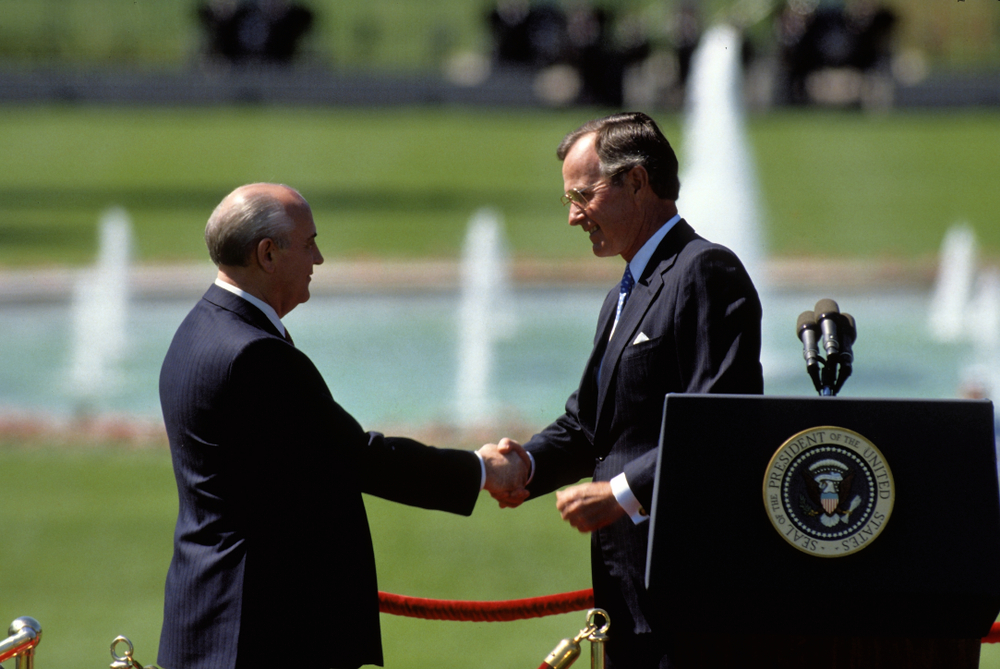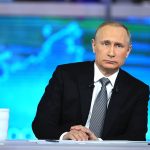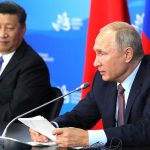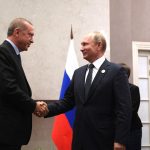by Robert E. Hunter
President George H.W. Bush’s death has led to reflection on his leadership, policies, and his (many) achievements and (fewer) failures. But it is also a moment to think about he conducted foreign policy. Even though he made some serious misjudgments, his administration stands out as exemplar of the means by which things should be done in foreign policy, as opposed to the sorry mess today.
The collapse of standards for conducting foreign policy did not begin with Trump but has been on the decline since the latter years of the Clinton administration. Why this has happened needs to be examined if the United States is to get back on track regarding how it does business with the outside world.
To begin with, Bush was the last person to enter the Oval Office well-prepared to assume the duties of commander-in-chief. His background as congressman, ambassador (UN and China), and CIA director were important for the perspective they gave him on major issues and their execution. Most important was the use he made of his eight years as vice president. This did not mean just following in the policy footsteps of his predecessor, Ronald Reagan. The great benefit of Bush’s being number two in the West Wing lay in his learning how to do the job (and how not to do it), how an administration should be organized, and the kinds of people needed to advise and support a president.
In all these areas, there has since been no presidency like Bush’s. Prior to being elected, none of Bush’s four successors, Bill Clinton, George W. Bush, Barack Obama, and Donald Trump, had had more than passing involvement in foreign policy issues and certainly not in making decisions and getting them implemented. Following the G.H.W. Bush presidency, especially between then and 9/11, the United States also enjoyed a holiday from history, in what for years was widely and erroneously called a “unipolar moment.”
Until the return of Russia to great-power competition and the rise of China to the first ranks, too many of America’s foreign policy experts and government officials did not see the need for the kind of basic strategic analysis that management of the Cold War had required. They failed to understand that, with the end of the Soviet challenge and fear of a possible nuclear war, U.S. allies and partners no longer had to shelter under the American wing, ready to follow Washington’s lead in their foreign policies.
Nor did there seem a need to prioritize recruiting and engaging at high levels of the U.S. government people talented in foreign affairs and able to meet the exacting standards established during of the four decades of the Cold War. Thus, too often high-level positions were filled not by the best people the nation had to offer. Rather, competitions for power and position took place, with an emphasis on the pursuit of consensus policies instead of a careful analysis of U.S. interests and policy innovation.
By contrast, President George H.W. Bush rarely fell into that trap. Most consequential were U.S. relations with Russia. Even before the Soviet Union collapsed, Bush proposed a Western grand strategy to “create a Europe whole and free” and at peace. He understood the critical importance for the future of U.S. and European security in not treating Russia as a defeated power, as the Treaty of Versailles did to Germany and that later helped propel Adolph Hitler to power. Instead, Bush tried to include Russia in building European security, as did President Bill Clinton after him. The experiment was largely successful throughout most of the 1990s. Only when those officials with a sense of history retired did the United States begin exploiting Russian weakness, thus providing grist to Vladimir Putin’s nationalist mill. Today, Bush’s vision is dead, and America could be on the cusp of another cold war.
Contrasting George H.W. Bush’s presidency to Donald Trump’s, Bush’s national security advisor was Brent Scowcroft, one of the best individuals to hold that position, whereas President Donald Trump’s latest choice for that position, John Bolton, is as ideologically blinkered and incapable of making sound judgments about America’s best interests abroad as virtually anyone else who has ever held high national security office. But the route from thoughtful Scowcroft to befuddled Bolton has not been a sudden departure from the normal but a downward slope. The same can be said for the position of secretary of state. Thus, the current incumbent, Mike Pompeo, last week in the Wall Street Journal airily dismissed concerns about Saudi Arabia’s killing of journalist Jamal Khashoggi as “Capitol Hill caterwauling and media pile-on.”
A key question is whether it is possible to get back to the way the George H.W. Bush administration crafted and conducted U.S. foreign policy and, in the process, save the country from the recurring follies of the Trump presidency and thereby increase the chances that his successor will be more adept at fulfilling the role as commander-in-chief and the nation’s principal diplomat. In an ideal world, it’s highly desirable to elect someone to the nation’s highest office who has considerable understanding of foreign policy and national security challenges, not just as a sideshow in a presidential campaign. This is a lesson to be impressed on aspirants for the job before they throw their hats into the ring.
At the same time, the nation’s foreign policy elite, along with the profession’s trade schools and think tanks, need to pull up their collective socks in terms of basic analysis of global developments, America’s place in them, and the methodology of strategic thinking that has fallen into disuse. So, too, the American media, which by and large are failing the nation in fostering serious, unbiased understanding and debate about the outside world, again need to play a serious role. That includes not just showcasing consensus-driven so-called experts but a new generation of critical thinkers.
The foreign policy legacy of George H. W. Bush is clear. Not so clear is whether his inspiration will be heeded and, if so, whether it will happen in time.






Ambassador Hunter lays out a solid analysis of the state of U.S. foreign policy and statecraft, with his hope that it may return to that in the days of President George H.
W. Bush. The number one step in that direction is very clear – ‘dump Trump’. The Republicans must realize that necessity. If they do, won’t it be wonderful to have an informed and civil 2020 presidential campaign? Or am I dreaming?